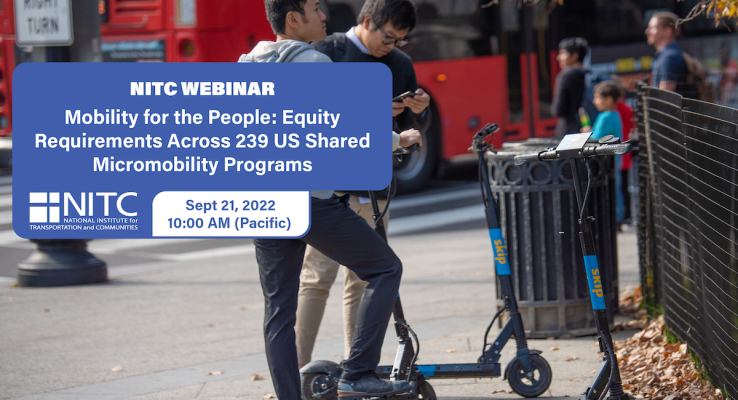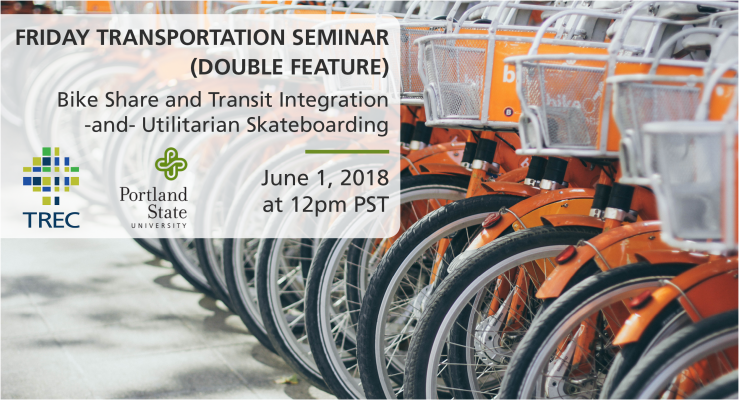PRESENTATION ARCHIVE
OVERVIEW
Equity requirements in shared micromobility programs have become increasingly prevalent in recent years, but our understanding of the scope and breadth of these requirements has been relatively limited. To address this gap in understanding, we collected documentation about 239 shared micromobility programs from the U.S. and have compiled all the data into an online, interactive dashboard. In this webinar, we will discuss the kinds of equity requirements that are most prevalent, the strategies cities/agencies employ to operationalize equity, and the extent to which these programs are monitored and evaluated. We’ll present findings from our review of 239 U.S. programs, supplemented by five case studies.
In addition, we’ll introduce attendees to two practitioner-focused tools we created to accompany this work:
1)...
Read moreThe video begins at 1:12.
View slides
Summary: Electric bicycles (e-bikes) are well established in China and other Asian and European countries but have yet to realize their potential in the United States, although recently the number of e-bikes has been growing. Research on the economic, operational, and safety issues of e-bikes in the U.S. is limited. This research aims in part to understand if different bicycling technology, in this case electric assist bicycles or e-bikes, can reduce barriers to bicycling and encourage more bike trips and longer bike trips, and increase the diversity of people bicycling, including people with a disability or chronic injury to bicycle. Some of these barriers include trip distance, topography, time, and rider effort. E-bikes typically resemble a standard pedal bicycle with the addition of a rechargeable battery and electric motor to assist the rider with propulsion. To answer these questions, we conducted an online survey of existing e-bike users on their purchase and use decisions. Results from 553 e-bike users across North America are analyzed here. Results suggest that e-bikes are enabling users to bike more often, to more distant locations, and to carry more cargo with them. Additionally, e-bikes allow people who would otherwise not be able...
Read moreLearn more about our other research on e-bikes here.
Over the last couple years, electric bicycles (e-bikes) have been gaining momentum. E-bikes may play an important role in addressing cities’ transportation and public health problems by getting more people out of cars and onto bicycles. But as the number of users increase, so too will potential conflicts (actual or perceived) with other road users, causing policy questions to arise.
The current state of e-bikes regulation varies dramatically across state and local jurisdictions, causing confusion. The confusion stems from the wide variety of devices and technologies on the market, perceived overlap of legal entities’ jurisdiction over the device, outdated or absent laws and regulations, and inconsistency of terms used to describe e-bikes. This confusion creates uncertainty for manufacturers and dealers and makes riders wary of embracing e-bikes.
One of the biggest concerns people have about e-bikes and their use, especially on shared-use paths, is speed....
Read moreFriday Transportation Seminars at Portland State University have been a tradition since 2000. With over 450 seminars presented and recorded (access the archive of seminars here), we host both visiting and local scholars to share the latest in research, technology, and implementation in transportation.
EDUCATION LIBRARY ARCHIVE
Missed the seminar or want a look back?
David Soto Padín
Graduate Research Assistant at Portland State University, and President of the Students in Transportation Engineering & Planning (ITE-STEP
David...
Read more

